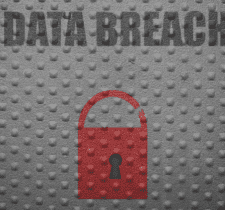The EDPB has recently published a document containing detailed data breach notification guidelines for EU organisations.
The EDPB has recently published a document that provides guidelines on how to handle personal data breaches as required by the EU General Data Protection Regulation (GDPR). The guidelines are intended to assist controllers, processors and supervisory authorities to follow a consistent approach when dealing with personal data breaches. The GDPR defines a personal data breach as a security incident that involves the accidental or unlawful destruction, loss, alteration, unauthorized disclosure of, or access to, personal data. The guidelines provide comprehensive information on the legal requirements of data breach notification, the scope of the guidelines, and key definitions relevant to the topic.
The guidelines from the EDPB outline the essential elements of a data breach notification.
Organizations are required by law to report data breaches to the relevant supervisory authority within 72 hours after becoming aware of the breach. Failure to comply with this requirement will attract a penalty fine. It is essential to understand the legal requirements of data breach notification, as this will help organizations meet their obligations fully. The guidelines outline the essential elements of a data breach notification, which include specifying the type of breach, the categories of personal data, the number of individuals affected, and the contact details of the Data Protection Officer. Organizations are also required to describe the likely consequences, and the measures proposed or taken to address the breach. The notification must be clear and concise and should be customized to the specific situation, taking into account the sensitivity of the data, the purpose of the data processing, and the categories of individuals affected.
The EDPB guidelines suggest that organizations assess the risk associated with a data breach as soon as they discover it.
Organizations are advised to assess the risk associated with a data breach immediately after discovering it. This assessment will determine whether to report the breach, the level of detail to include in the report, and the necessary steps to take to address the breach. The guidelines provide a list of questions that organizations can use to assess the severity of the breach. Based on the severity of the breach, organizations must classify it as high, medium, or low priority. The classification will determine the level of communication and action needed.
Organizations should familiarize themselves with these guidelines to ensure they are prepared for the likelihood of experiencing a data breach.
In conclusion, the rules and regulations surrounding personal data breach notifications are vital for organizations to follow. Failing to comply with these rules can attract significant fines and reputational damage. The guidelines provided by the EDPB offer a comprehensive approach to how organizations should handle data breaches, including how to assess and classify the severity of the breach, and the necessary requirements for a data breach notification. Organizations should familiarize themselves with these guidelines to ensure they are prepared for the likelihood of experiencing a data breach. Failure to prepare may leave companies vulnerable to much more than just financial penalties.
Does your company have all of the mandated safeguards in place to ensure the safety of the personal data you collect or process? Aphaia can help. Aphaia also provides both Data Protection Officer outsourcing, and GDPR and Data Protection Act 2018 consultancy services, as well as Telecom Regulatory Consultancy. We can help your company get on track towards full compliance. Contact us today.








